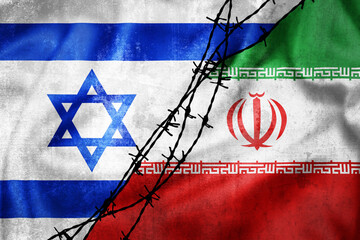U.S. Begins Evacuating Personnel From Middle East Amid Fears of Israeli Attack on Iran

This article was originally published by Cassie B. at Natural News.
-
- The U.S. is partially evacuating personnel from Middle East bases amid rising tensions over fears of an unauthorized Israeli strike on Iran’s nuclear facilities.
-
- Iran’s IRGC warns it will retaliate against U.S. bases if attacked, raising risks of a broader regional conflict.
-
- Israel may act unilaterally against Iran’s nuclear program, despite U.S. reluctance, escalating the crisis.
-
- Diplomatic talks between the U.S. and Iran have stalled, with Trump demanding denuclearization and Iran insisting on sanctions relief first.
-
- Oil prices surged as markets reacted to the evacuation news, signaling fears of a conflict disrupting critical shipping routes.
The United States has initiated a partial evacuation of non-essential personnel and military dependents from embassies and bases across the Middle East, signaling escalating tensions with Iran and fears of an unapproved Israeli strike on Tehran’s nuclear facilities. The move, which was authorized by the State Department and Pentagon this week, follows President Donald Trump’s accusation that Iran is deliberately stalling negotiations while continuing uranium enrichment in a direct violation of the defunct 2015 nuclear deal.
With voluntary departures already underway in Iraq, Kuwait, and Bahrain, the U.S. faces mounting pressure to de-escalate a crisis exacerbated by U.S. support for Israel’s military operations in Gaza, which Tehran and its regional proxies have condemned as genocide. Meanwhile, Iran’s Islamic Revolutionary Guard Corps (IRGC) has warned it will retaliate against U.S. bases if attacked, raising the specter of a broader regional war.
A dangerous chess game
The evacuation orders, described by Trump as precautionary, underscore Washington’s assessment that the Middle East “could be a dangerous place” in the coming weeks. Reports from U.S. intelligence officials suggest Israel may be preparing unilateral action against Iran’s nuclear sites in a scenario that the White House has neither endorsed nor outright denied.
“Based on our latest analysis, we decided to reduce the footprint of our Mission in Iraq,” the State Department confirmed in a statement Wednesday. CENTCOM officials emphasized readiness, stating they maintain “a constant state of readiness to support any number of missions around the world at any time.”
Iran, however, has dismissed U.S. concerns as fearmongering. “Iran is not seeking a nuclear weapon, and U.S. militarism only fuels instability,” its UN mission declared on X, rebuffing Trump’s demands for complete denuclearization.
Israel’s shadow war
Prime Minister Benjamin Netanyahu’s government has long viewed Iran’s nuclear program as an existential threat, and recent leaks suggest Israel may act regardless of U.S. approval. Although Netanyahu’s office dismissed earlier reports of coordination with Trump as “fake news,” analysts note that Israel’s past strikes on Syrian and Iraqi nuclear sites, which were conducted without warning, set a troubling precedent.
The IRGC’s top brass has responded with threats. Defense Minister Aziz Nasirzadeh vowed Iran would “target all U.S. bases across the region without hesitation” if provoked in a warning that aligns with Tehran’s strategy of asymmetric warfare through proxy militias in Iraq, Syria, and Yemen.
With nuclear talks stalled after five failed rounds in Oman, Trump admitted he is “less confident” about reaching a deal. His administration’s hardline stance demanding that Iran halt all enrichment clashes with Tehran’s insistence on sanctions relief first.
The White House’s evacuation orders may also serve as leverage, considering Trump’s history of brinkmanship. Yet the risk of miscalculation looms large. Oil prices surged 4% on evacuation news, reflecting market jitters over a potential conflict that could disrupt critical shipping lanes like the Strait of Hormuz.
As U.S. personnel depart the region, the Trump administration is walking a tightrope between restraining Israel and deterring Iran. The Gaza conflict has already inflamed anti-American sentiment, and any military escalation could spiral into a wider war. For now, diplomacy remains the stated path, but with Tehran and Washington locked in a high-stakes standoff, the Middle East edges closer to another devastating confrontation.







